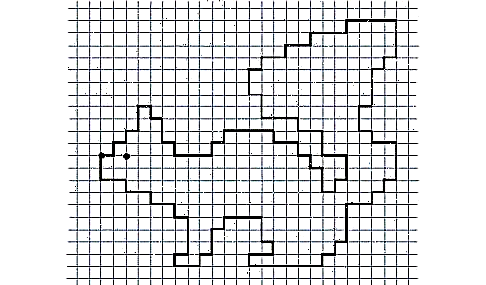The weight of a child depends on the genetic stock of the parents. Children born at the same time and under the same conditions differ in the intensity of development. Each of them has its own individual characteristics that are responsible for weight gain. Also, weight gain depends on the type of feeding and the quality of breast milk or formula. How much should a child weigh at 2 months, young parents ask themselves. The answer to this question is individual, however, pediatricians have average values.

The boy lies on his stomach
Body change, height and weight at 2 months
A baby born at a normal term, which is 38-40 weeks, has a weight of 3200 to 3700 g. In the first month, he gains about 600 g, in the second month - another 500 g.
Newborns born prematurely can gain up to 1100 g in one month, depending on their initial weight. By the age of three months, they are equal to their peers.
Large babies are born as a result of genetic characteristics or post-term pregnancy. They are gaining weight very intensively. For 2 months, the increase is up to 2 kg. This is not considered a deviation, the characteristics of the physique and parents are taken into account.
Standards for boys and girls in tables
To determine the normal development of the baby, pediatricians have developed an indicative table. It takes into account age and weight gain in grams. Weight for a girl and a boy at 2 months is different. How much a 2 month old baby should weigh depends on the characteristics of the organism.
Weight parameters for girls, in kg
| Age / type of development | Very low | Low | Below the average | Middle | Above average | Tall | Very tall |
|---|---|---|---|---|---|---|---|
| 0 | 2 | 2,4 | 2,8 | 3,2 | 3,6 | 4 | 4,4 |
| 1 month | 2,7 | 3,2 | 3,7 | 4,3 | 4,9 | 5,5 | 6,2 |
| 2 months | 3,4 | 4 | 4,5 | 5 | 5,7 | 6,5 | 7,3 |
Weight parameters for a boy at 2 months, kg
| Age / type of development | Very low | Low | Below the average | Middle | Above average | Tall | Very tall |
|---|---|---|---|---|---|---|---|
| 0 | 2,1 | 2,5 | 2,9 | 3,4 | 3,9 | 4,4 | 5 |
| 1 month | 2,9 | 3,4 | 4 | 4,5 | 5,1 | 5,9 | 6,5 |
| 2 months | 3,8 | 4,4 | 5,1 | 5,8 | 6,4 | 7,2 | 8,3 |
Important! If the child's weight does not coincide with the indicators of the generally accepted table, then this does not mean poor health. Most likely, the baby develops according to individual characteristics.

Girl in a green suit
In addition to weight, the child is actively growing. In boys and girls, the increase in cm is slightly different. As well as for weight, there is a table that determines the normal development of the baby, depending on height.
Growth table
| Age / type of development | Very low | Low | Norm | Tall | Very tall |
|---|---|---|---|---|---|
| 2 months | 52,4 | 54,4 | 56,4-60,4 | 62,4 | 64,4 |
Here are the average values that apply to boys and girls. The increase in height depends on the genetic fund of the child and the individual characteristics of his development.
How depends on the type of feeding
Children who receive different types of food have different indicators in height and weight. According to pediatricians, breastfed babies gain weight more slowly.
Weight and height table for naturalists and artificial
| Weight, kg | Height, cm | Head circumference, cm | Chest circumference, cm | |
|---|---|---|---|---|
| Girls breastfeeding | 5,1 – 5,3 | 57 | 38,3 | 37,8 |
| Breastfed boys | 5,2 – 5,5 | 58 – 58,5 | 38,4 | 38 |
| Girls on artificial or mixed type of food | 5,5 – 5,6 | 58,5 | 38,6 | 37,9 |
| Boys on artificial or mixed food | 5,6 – 5,7 | 58 – 60 | 38,5 – 39,5 | 38,1 |
Minor deviations from the indicators in the table are considered normal and do not require treatment. The values are presented as an average. The exact weight of the baby is determined in the morning.
Important! Head circumference and chest circumference are important indicators in the normal development of a newborn. If there are deviations, it is necessary to undergo an examination by a pediatrician and a neurologist to prescribe further treatment and eliminate the problem.
Weight gain in infants with breastfeeding and artificial feeding differs slightly. Depends on the fact that adapted milk formulas are slightly higher in calories than mother's milk.
At two months of age, the baby eats 7 times a day. Each meal is about 90-120 ml per day. When feeding on breast milk, it is impossible to track how much the child eats. Also at this age they eat on demand, for each meal a different amount of milk can be produced.
When feeding with milk formulas, a regimen is developed in children. Each feeding takes place 3-4 hours apart. One serving is 100-120 ml. If the newborn does not eat the whole portion, do not force him, he eats as much as he needs.

Baby formula
Weight gain and gain
From the first to the second month, the boy should gain weight 900-1300g., The girl - 800-1200g. During the same period, the growth of boys increases by 3.8 cm, girls - by 3.5 cm.
Weight gain and gain of boys and girls at 2 months
| Weight gain, g. | Growth, cm | |||
|---|---|---|---|---|
| Month | 1 – 2 | 2 – 3 | 1 – 2 | 2 – 3 |
| Boy | 950 – 1350 | 720 – 900 | 3,4 – 4 | 2,5 – 3 |
| Girl | 820 – 1160 | 630 – 880 | 3,2 – 3,8 | 2,7 – 3,1 |
After reaching the age of two months, the boy gains weight 170-200 g per week, the girl 150-180 g. During this period of time, boys gain 700-900 g and gain up to 3 cm in height, girls - 600-800 g, grow 2.7 cm.
When the child is not gaining the right weight
In some situations, a child in the first year of life does not gain the weight he needs. This may be due to both the type of feeding and the baby's diseases. The main non-health reasons are:
- adding additional fluid to the child's diet;
- too early introduction of complementary foods, the digestive system does not absorb food;
- improper preparation of the mixture, too much water;
- too rare feedings;
- poor absorption of the nutrient mixture;
- insufficient amount of breast milk;
- underdeveloped sucking reflex;
- Difficulty grasping the nipple by the baby
- mother's milk contains few nutrients, the baby does not gorge;
- improper nutrition of a nursing mother.

Baby on the scales
What determines the weight of the baby
Weight gain in a child depends on many factors that are not only related to nutrition. An important role is played by the general health of the baby, the timing of birth, conditions of detention, hereditary factor, and the quality of the food received. At two months, the baby should eat 7 times a day. The total amount of milk consumed is 900 ml.
Important! The baby should consume 900 ml of liquid food per day, and it is not necessary to divide the total amount into equal meals.
How health problems affect weight
Weight gain may be insufficient due to a pathological condition. It can be congenital and acquired. Such diseases include:
- genetic diseases with impaired absorption of nutrients (Down's cider, cystic fibrosis, phenylketonuria and others);
- congenital hormonal disorders (hypothyroidism, hyperthyroidism, adrogenital syndrome);
- intestinal infection;
- helminth infection;
- some heart defects;
- congenital renal failure;
- violation of the nervous system;
- type 1 diabetes mellitus;
- anemia of any nature;
- celiac disease;
- frequent colic;
- colds.
In the presence of any of these diseases, the pediatrician adjusts the baby's diet. It is important to know what is the reason behind this condition. It is advisable to track weight gain every month or once a week. A qualified specialist should deal with this issue. Self-weighing of a child at home is possible on the recommendation of a doctor.
Signs of underweight
To be sure that the child is not gaining the necessary weight well, it is necessary to monitor his condition and behavior. When tracing such signs, you need to consult a doctor so that he can help solve the problem:
- the baby is gaining less than 600 g per month;
- no folds form on the arms and legs;
- the skin is peeling, there is no turgor, pale;
- frequent crying;
- poor appetite or no appetite at all;
- sleep disorders.
Important! It is forbidden to independently resort to any measures. Treatment is prescribed only by a pediatrician. Solving the problem on your own can harm the baby.

Child in a yellow dress
Prematurity
Children born prematurely require special attention. They are weaker than their peers. They require a special type of food and diet. If there are disorders with weight gain, it is necessary to sound the alarm. Most often, these babies cannot suckle on their own, as they are weak. At first, the newborn is fed with a bottle, pumping milk into it. Later, if desired, breast is offered.
Post-term babies
Newborn children born later than the appointed time practically do not suffer from underweight in weight. They are born at 41-43 weeks of gestation. At this point, their weight is slightly higher than that of other children. By the third month of life, body weight levels off and becomes the same as that of peers. For them, a slight shortage of grams is considered the norm.
Necessary measures
Under the assumption that the child is not gaining weight well, you need to know what to do. Many experienced pediatricians advise:
- inform the doctor about your suspicions so that he gives special attention to this issue;
- be examined for diseases of internal organs;
- do not introduce new mixtures into the diet without discussing it with your doctor;
- keep breastfeeding if possible;
- avoid stress during lactation;
- feed your baby in a relaxed environment;
- try to develop a feeding schedule by the hour;
- be sure to feed the baby at night.

Baby eating from a bottle
What to do if your child is overweight
Do not panic if a baby weighs 6 kg at 2 months. Be sure to take into account the genetic factor of the child, the characteristics of his development, type of nutrition. If at this age the baby is actively gaining weight, then it is worth contacting the pediatrician for an examination and an appointment. During the examination, there is a chance to identify metabolic disorders, diseases of internal organs.
However, most often such problems are associated with heredity and are considered the norm. After the baby learns to sit, then crawl, he will quickly lose all those extra pounds.
How to bring weight back to normal
In some situations, an overweight child needs treatment. For this, the pediatrician conducts an examination, then prescribes treatment. Doctors advise you to follow certain instructions:
- with artificial feeding, change the infant formula to a less high-calorie one;
- cancel night feeding;
- prepare a mixture in a lower concentration;
- offer to drink water between feedings;
- more often spread on the stomach to stimulate the motor activity of the baby;
- examine the hormonal background;
- withstand between feedings for at least 2 hours;
- develop a diet by the clock;
- so that the child wakes up less often and asks for food, it is recommended to hang shading sides on the crib.
- check breast milk for fat content.
Important! When artificial feeding, it is important to pay attention to the quality of the formula, the preparation method and the intervals between feedings.
Healthy weight gain
A baby that is actively increasing body weight, while without signs of disease, has the following characteristics:
- activity;
- good dream;
- healthy skin color;
- no problems with stool;
- clarity of urine;
If there is a deviation from the norm, it is necessary to consult a specialist to find out the cause.

Child with teddy bear
Mixed feeding assumes that the baby first eats breast milk, then he is supplemented with milk formula. With this type of feeding, being overweight is almost impossible, since the baby receives most of the breast milk, which has a lower calorie content. However, you should carefully consider the choice of infant formula. It can cause colic and stool problems.
At 2 months, a child is actively gaining weight, a diet is established, the body is strengthened, and the digestive system is formed. At this age, the average baby weighs 4.5 kg. In some cases, deviations from the norm occur that require medical intervention.



